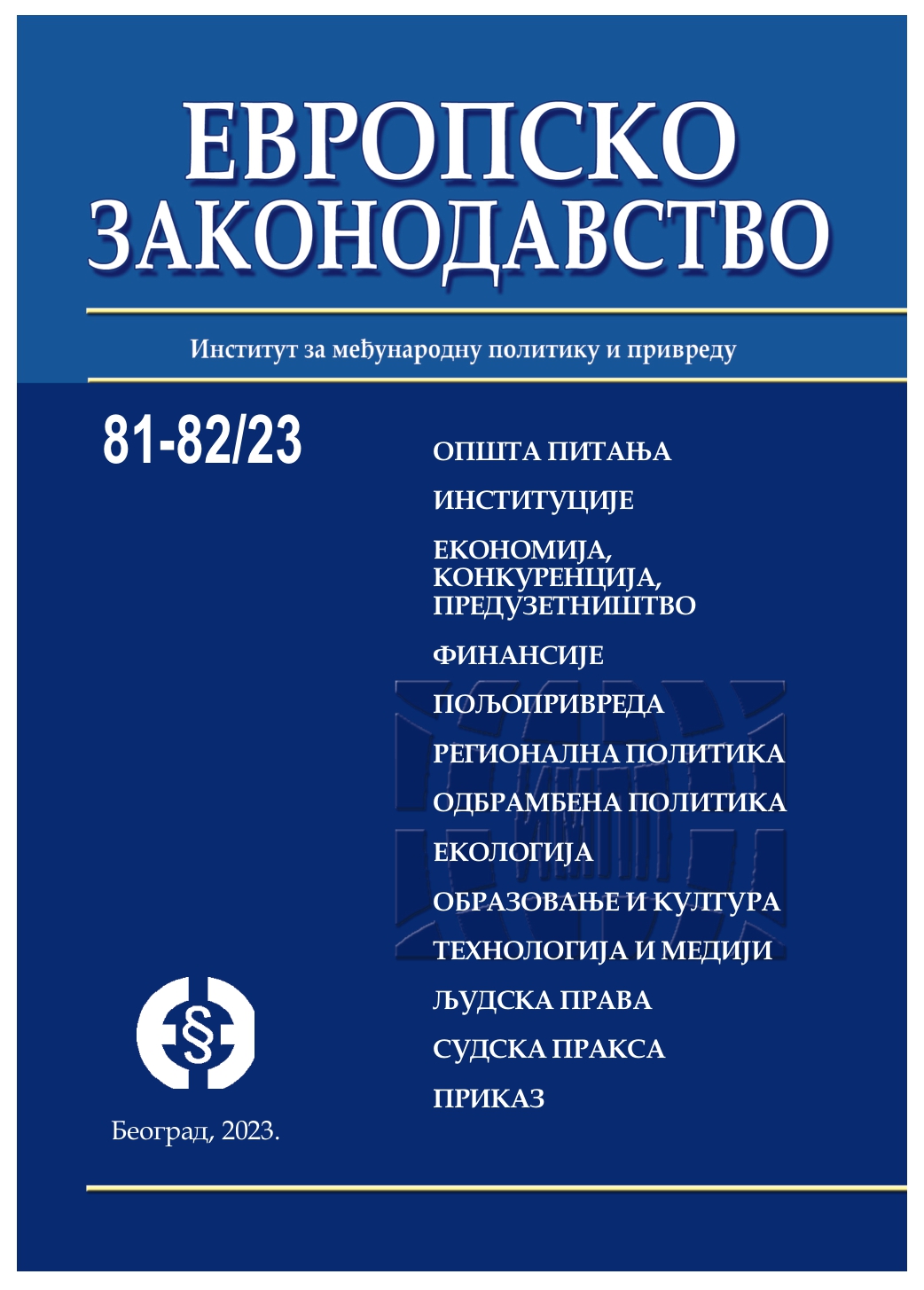Институционални контекст функционисања Европског парламента
The institutional context of the functioning of the European parliament
Author(s): Birsena Numanović DuljevićSubject(s): Law, Constitution, Jurisprudence, EU-Legislation
Published by: Институт за међународну политику и привреду
Keywords: EU; European integration; European parliament; reform
Summary/Abstract: The European Union (EU) is a political, economic, and security grouping of 27 countries established on the basis of common interests formulated in legally binding documents. Acting through the European integration process, the EU implements its strategic policies, through which it deepens and strengthens its relations with countries while working on their inclusion in its institutions. Achieving the mentioned goals implies complex activities provided by defined procedures that are carried out according to the standard stages of accession within the organisational structure of the EU. The European Parliament is a special body within the EU organisational structure that includes representatives of all EU citizens elected in direct democratic elections every five years in all member states. The initial advisory role of the European Parliament has increased over time through political-control competences in various spheres connected with the affairs of other organisational units, including the domain of the Common Foreign and Security Policy (CFSP). According to the analysis in question, the EU has to undergo a significant transformation as a result of recent changes in international relations that have affected global security.
Journal: Европско законодавство
- Issue Year: 22/2023
- Issue No: 81-82
- Page Range: 47-59
- Page Count: 13
- Language: Serbian

